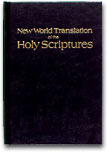
Some witness friends of mine have asked me to reconsider the gentile times prophesy, as interpreted by the watchtower organization. I have re-examined their interpretation and have also re-examined your essay "Was 1914 the end of the Gentile times?"I would appreciate your view on the chronological interpretation of Daniel with regard to the 2,520 days relating to years and hence starting in 607 bce and ending in 1914.You mention chronology at the beginning of your essay and then refer to PYRAMIDOLOGY as a basis for CT Russell’s interpretations. What do you mean?I need the answers to these questions so that I can defend my position.Many thanks
The Gentile times essay makes the case that the so-called Gentile times, that is, the interval God has allowed for the nations to trample “Jerusalem,” has nothing to do with the destruction of Jerusalem in 607 BCE, or whenever it was supposed to have occurred. It is therefore pointless to argue pro or con whether Nebuchadnezzar sacked Jerusalem in 607. It makes for historic trivia but it is irrelevant in terms of Christ’s prophecy.
If common sense prevailed instead of dogma, it would become apparent that Jesus was foretelling a future trampling of the holy place, not a trampling that had occurred five centuries before.
According to numerous related prophecies, the appointed times that Jesus referred to in the 21st chapter of Luke has to do with the trampling of the holy ones during the tribulation. In the first century the Romans fulfilled the prophecy when they razed the temple. In the grander fulfillment the 8th king will trample on God’s spiritual temple for a specified interval. The 11th chapter of Revelation indicates that the appointed times for the beast to lay waste to God’s holy place amounts to 42 months.
As for the pyramidology, Russell was captivated by the idea that pyramids had built-in chronological values that supposedly held divine secrets. It was believed that the measurements of interior passageways represented years – an inch for a year instead of a day for a year. By such means Russell calculated that 1914 would be the year the world would end. In reality using pyramidology to divine the future amounts to spiritistic divination. After Russell’s death the Watchtower junked pyramidology but kept 1914 as the year that Christ’s parousia began. (Russell taught that Christ’s presence began in 1874.)
E-watchman maintains that the 1914 doctrine is the foretold operation of error promoted by Satan through means of powerful works and lying signs and every unrighteous deception. The fact that 1914 has is roots in the demonistic art of divination is one aspect of an unrighteous deception. World War One and the outbreak of the Spanish Flu in 1918 were very powerful signs intended to convince Jehovah's people that Christ had begun ruling.
The 1914 doctrine has been used as cover for a man of lawlessness within the organization. By using prophecy to convince Jehovah's Witnesses that Christ came in 1918 to remove an evil slave from the midst of the organization and that he appointed a faithful slave over all of his belongings, the Watchtower has cloaked itself in infallability and placed all evil and apostasy outside the Governing Body. That's why Jehovah's Witnesses are incredulous when presented with the evidence of the Watchtower's corruption and apostasy. The general reaction is 'Oh, the Watchtower could never do that. Jehovah wouldn't allow it.'
The 1914 doctrine and all that goes with it has been instrumental in enabling a man of lawlessness to lead the organization into apostasy without anyone questioning it.
For more on the man of lawlessness see the essay entitled Mystery of the Antichrist








